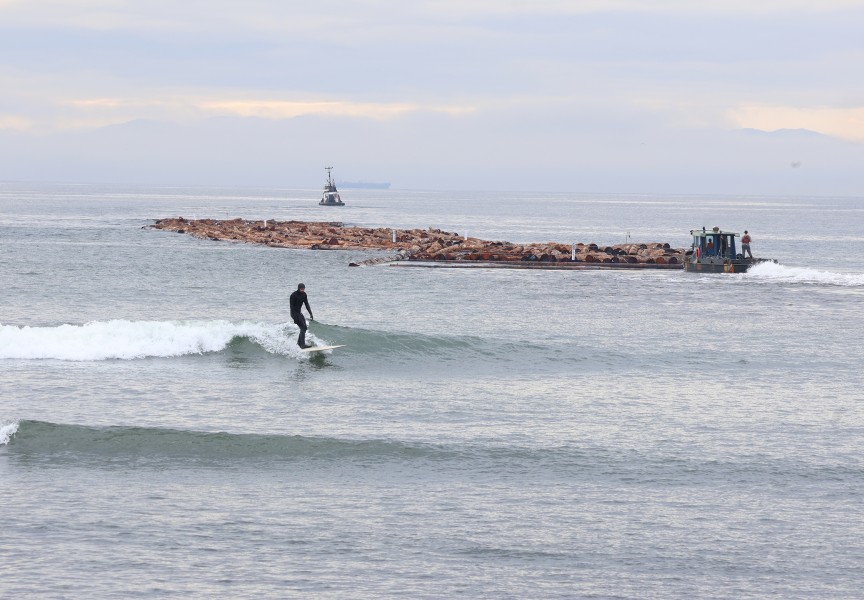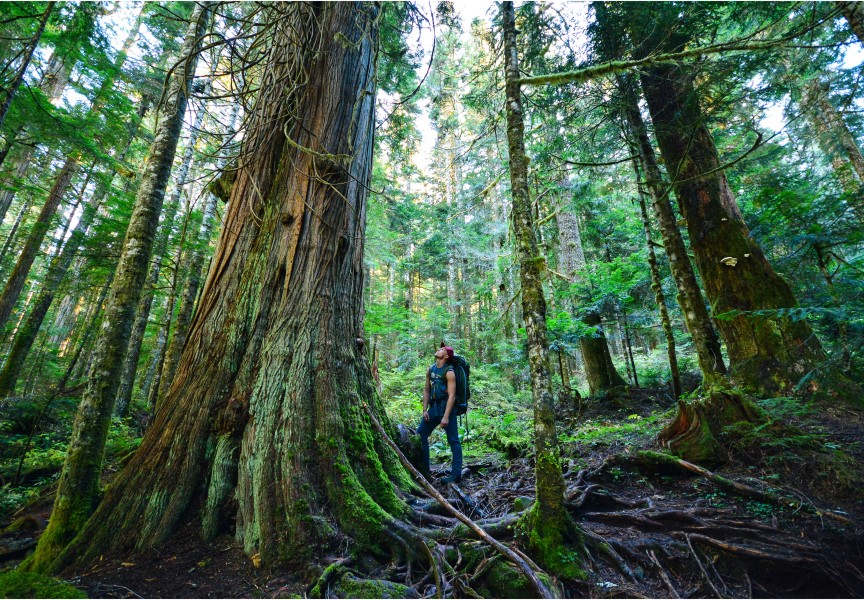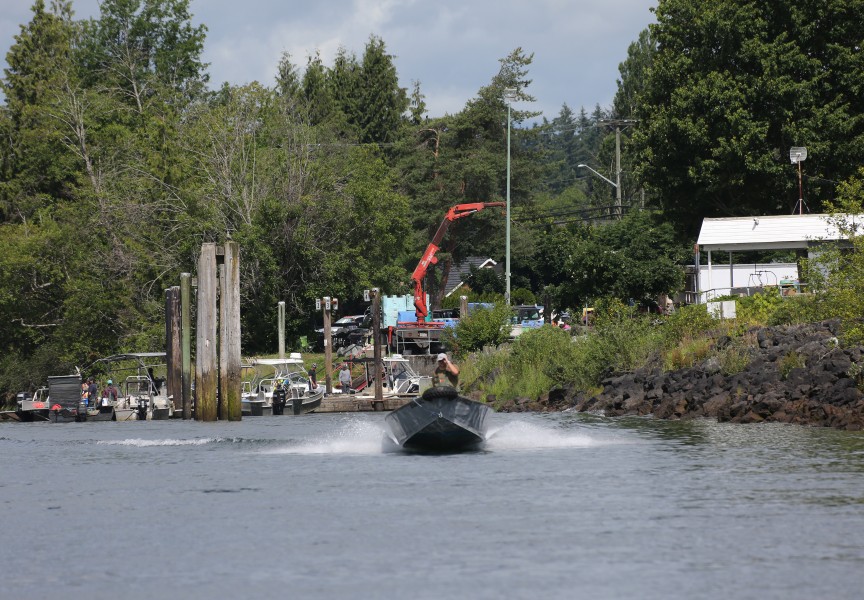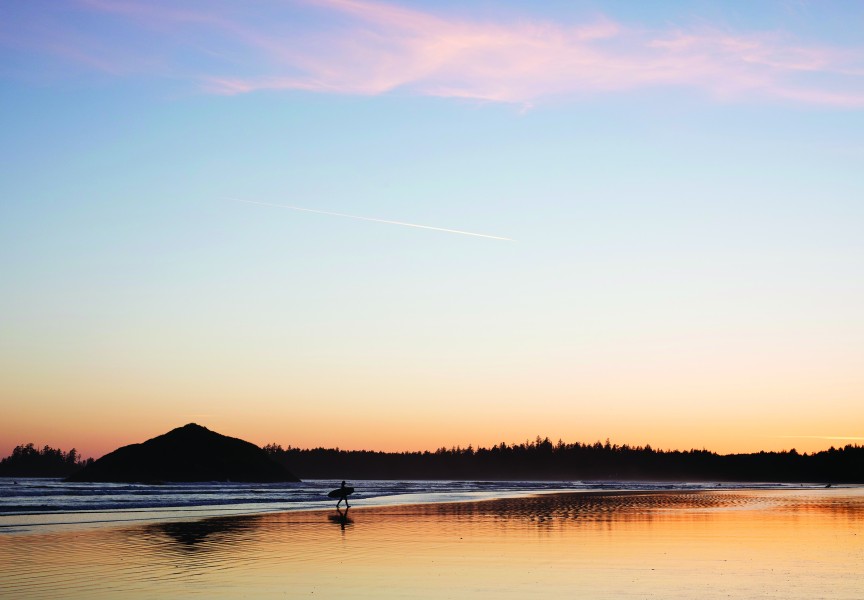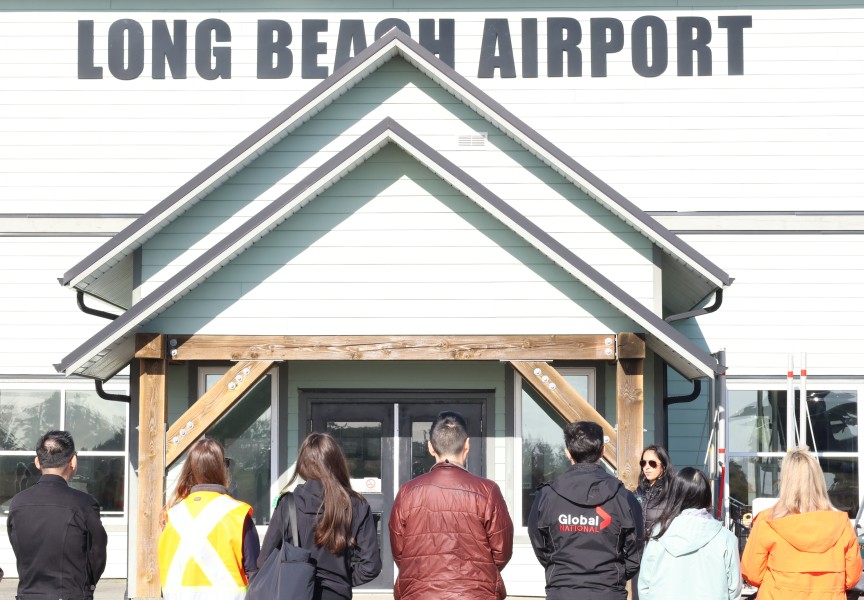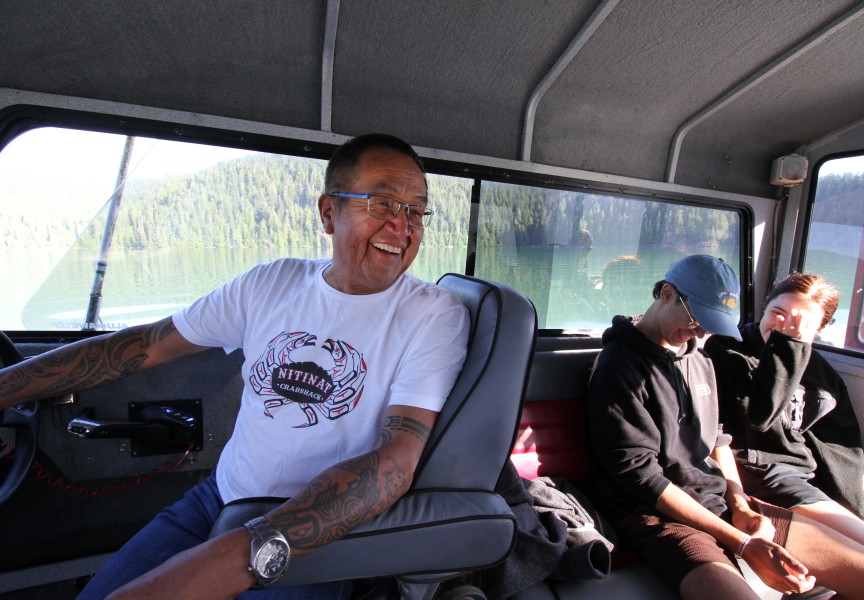Sipping organic Spirit Bear Coffee and snacking on sweet Bannock scones, 150 attendees of B.C.’s first-ever Indigenous Tourism Conference were on the same page about the upcoming 2025 tourist season.
Despite the uncertainty of U.S. tariffs slowing economic growth across the country, tourism industry professionals around the room thought B.C. is on track for a full-on summer. They shared their perspectives at the conference, which was held April 28 to 30 in Yuułuʔiłʔatḥ (Ucluelet First Nation) territory.
“I honestly don’t think that politics will affect us. We do have a lot of local guests that come and it’s a very popular area,” said Sicily Aren, who represented the Prophet River First Nation and Sikanni River Ranch in Northern B.C., which is within the Muskwa-Kechika Management Area.
“Our dollar is a lot cheaper too, so that brings up more Americans. I don’t see politics playing a role in our business,” said Aren.
Corey Rich, Yuułuʔiłʔatḥ Government economic development officer, pointed out that the Trump regime has caused many Canadians to reconsider their usual travel plans to the U.S.
“I think that’s going to cause a lot of local economic tourism to spend here, which is really exciting for all of our business, both Indigenous and non-Indigenous. I think we’re going to see low-vacancy and increased rates across hotels and vacation rentals,” said Rich.
A newly released 2024 Economic Impact of Tourism in Tofino study found that 711,200 visitors spent an estimated $430 million in Tofino last year. The study noted that tourism directly supported 3,190 local jobs.
“We’re training five new front desk staff,” said Rachel Leghissa, the marketing manager for Tin Wis Resort and Tsawaak RV Resort & Campground, two Tofino accommodation providers that are owned and operated by Tla-o-qui-aht First Nation.
“I feel like it’s already quite busy. We’re pretty sold out for the summer,” Leghissa told the Ha-Shilth-Sa after the April 28 panel discussion about building Indigenous-owned hotels and resorts.
“I think it’s similar to our experience when tourism shifted in the pandemic. We were still seeing a ton of Island visitors, B.C. visitors and Canadian visitors. That’s kind of the trend,” she said.
Trevor Cootes, Indigenous Economic Pathways founder and a conference co-host with Indigenous Tourism BC, says the outlook for 2025 is good.
“It might not be pre-pandemic levels, but it’s going to be good for local tourism businesses and Indigenous businesses,” said Cootes.
“People are excited,” Rich adds. “They are ready for it. They had the COVID years and they had the highway challenges. I think people are going to embrace the opportunity to really stabilize their businesses and really capture that tourism market.”
Chris Tait, tourism manager for Klahoose Wilderness Resort on the central west coast of B.C., said Indigenous-led tourism offers “the best of the best”.
“It’s the most authentic form of tourism in Canada,” said Tait during a panel discussion.
He said Klahoose Wilderness Resort charges guests $1,500 a night for stays that include cultural talks and grizzly bear viewing tours.
“Price doesn’t matter. Price as high as you think your experience is worth,” Tait said, noting that Klahoose, now entering its fifth season, is turning a profit.
“We raised our rates by 30 per cent and people didn’t bat an eye,” he said.
Indigenous Economic Pathways will host its second annual Indigenous Forestry Conference September 15 to 16 in Nanaimo and an inaugural Indigenous Blue Economy Conference in Parksville November 18 to 20.


